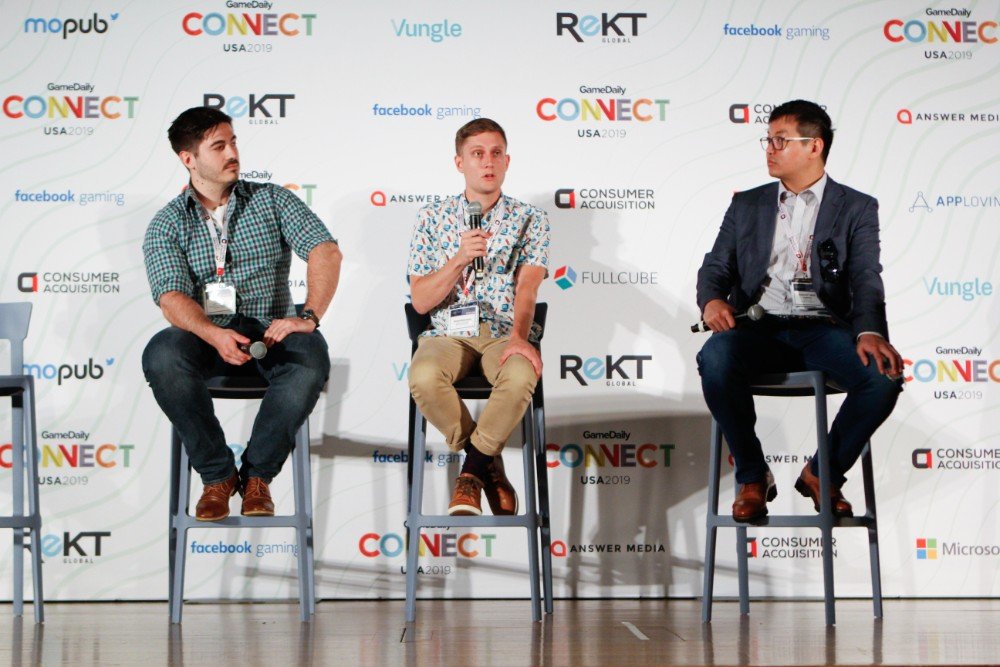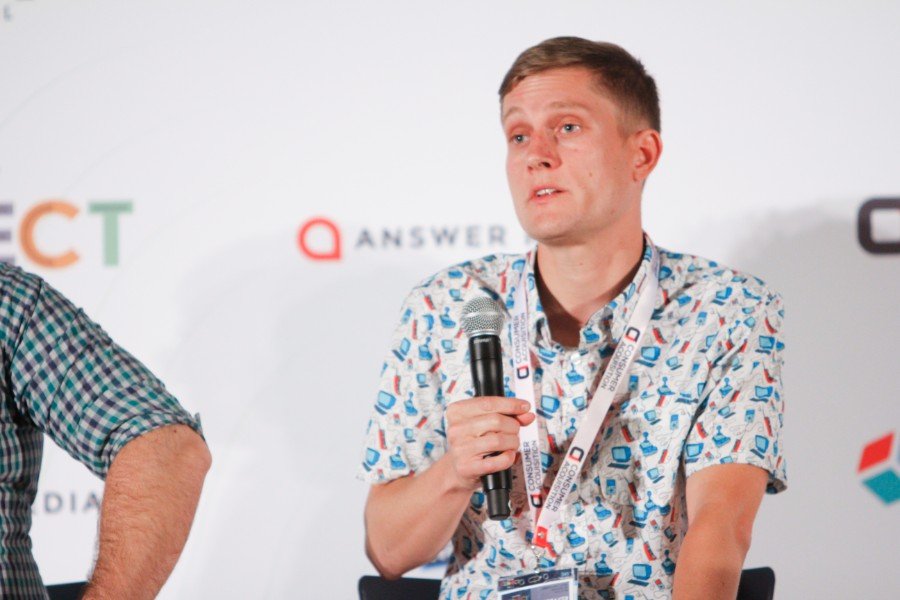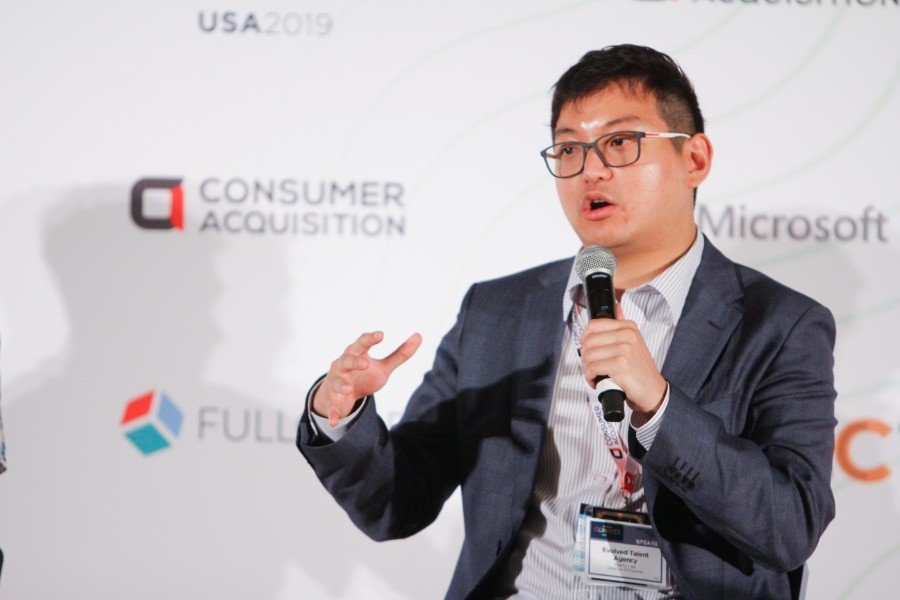
Esports, despite growing attention and investment, is still a nascent market. Newzoo estimates that the console/PC side of the esports sector will top $1 billion this year, while Niko Partners sees a much larger opportunity in mobile esports. Regardless of the platform, the esports industry has a lot of maturing to do. It was only a few years ago, for example, that the franchise model was brought into esports, and as Forbes noted in 2017, that model presents its own challenges.
“If you open the history books, you’ll see that nascent esports leagues are not unlike the early Big Four North American leagues, which were volatile places where commercially viable teams were here one day, but gone the next,” wrote Irwin A. Kishner, a sports lawyer at Herrick, Feinstein LLP. “For example, when the Basketball Association of America and the National Basketball League merged to form the NBA in 1949, the league had 16 teams, but only eight of those were still around in 1955. Original NFL franchises also came and went in the 1920s, as the early league found its footing, and the NHL barely survived its first year…”
During GameDaily Connect USA’s Esports Track in Disneyland last week, Mike Schwartz, GM of Overwatch League esports team LA Valiant, sat down with Benjamin Mercke, Head of Brand Partnerships & Account Management at streaming platform StreamElements, in a panel moderated by Barry Lee, Director of Esports at professional talent agency Evolved. The group discussed the future of the esports business and weighed in on the impact of the franchise model.
New Overwatch franchise teams are notoriously expensive, and could cost between $30 million to $60 million. Coming from OWL, Schwartz acknowledged that esports has historically been more grassroots, but he does think the franchise model is a boon for the sector.
“Coming from a franchise league, it’s definitely interesting to see the growth where esports started as grassroots… The community starts up and then the league forms around the grassroots’ want to be competitive, whereas with Overwatch it actually starts from the top-down,” he said. “Blizzard as the publisher comes up with the league and they mandate what partnerships can and can’t happen. Then they base regulations. But I think we see it has a lot of pluses than minuses, right? They mandate minimum standards which is great because we removed bad actors from a lot of the situations with that franchising.”

Schwartz noted that the franchise model can present a hurdle to more endemic esports groups that started as grassroots efforts.
“They see it as much more restrictive,” he said. “Definitely one of the major things is around the partners category, where Blizzard mandates what we can and can’t have. There’s a lot of pushback in seeing like, ‘Okay, we want to do our merchandising, but there’s a deal with [X or Y company] that’s in place, so we can’t do our own personal merchandising, which hurts some of our innovation in that space. For the new orgs that are getting into esports, I think it sets a really good baseline for safety of the investment itself.”
The franchise fees are another major problem for grassroots organizations. Just before the panel kicked off, we learned that esports group 100 Thieves would not have a team compete in Activision Call of Duty World League scheduled to begin in 2020 because Activision reportedly charges $25 million per team.
Calling it a “shitty situation,” 100 Thieves founder Matthew “Nadeshot” Haag explained, “We’re a start-up. We’re still a new company. To make a financial commitment as large as this isn’t possible for us right now.”
Mercke commented that when “household name brands, internationally recognized brands, like 100 Thieves,” announce that they can’t take part, it’s a problem for the league.
He continued, “I think inherently there are going to be challenges with brands like OpTic Gaming that are not going to be involved. That is definitely a hurdle that franchises have to get through. If you look at brands like the Valiant, who’ve taken their international brand model through MIBR and the Immortals and really translated it into a geographically-tied system, I think it can work. There are some that are doing it well. There are some that are not. It’s a matter of everybody getting on the same page I think.”
The upshot of the franchise model, if it’s tied to geography, is that it enables more passionate fan support. People just naturally tend to be more vocal about their city’s team, even if they don’t know much about esports in general.
“I think establishing a brand in a city is a very healthy thing for esports,” Mercke said. “Coming from the Fusion, one of the things that we had was a wild fan base. We did fan parties and fan events back in Philadelphia all the time, throughout the season. We got Gritty, the Flyers mascot, so we were activating with the Philadelphia Flyers mascot and the Fusion fan base. We would host watch parties at Xfinity Live! and there were a thousand people showing up on a Thursday night to watch an Overwatch match. And so, in terms of the franchise model, there are absolutely massive benefits. You gain the ability to connect with the fan base on a level that you couldn’t ordinarily do from the internet.”
That’s a sentiment that’s backed up by OWL heads, too. “The city-based format has really taken off in a faster and in a bigger way than I had expected,” Nate Nanzer, OWL commissioner told the Washington Post in July 2018. “I knew it would work — for all the reasons that work in traditional sports. I just thought it would maybe take more time.”
Mercke added that the city format is a big boon for advertising and branding too.
“There are massive branding opportunities, especially as Overwatch and the CDL will move to their actual home markets,” he said. “Initially, the first two years were kind of on the Internet and up in one location in L.A. Now that they’re going home, I think they’re going to start seeing partnerships really shift towards city level, and really start to activate with local markets. That is an extra benefit of geographically locating to one spot.”
From the player perspective, Lee (who works with a number of pro players at Evolve) said that the franchise model is relatively good for stabilizing the ecosystem.
“I can definitely say from the player side of things, the franchise model does give a lot of stability. [It] depends on league to league, but for the most part, players are generally guaranteed a certain amount of games that they will be able to play, [which lets them] showcase their skills, and when there are problems with their teams, there’s usually a league entity that they can fall back to to keep the teams honest. That really depends on whether the league entity is willing to enforce a lot of that. But in most cases there is a fallback there,” he explained.
As we’ve seen with Riot’s partnership with Honda on the League of Legends Championship, among others, more and more non-endemic brands are looking to get involved in the esports market. It’s a burgeoning sector and one that gives advertisers exposure to the attractive young demographic.
Schwartz has seen the rise of non-endemic brands first-hand. He described how the Valiant franchise put on a Kit Kat weekend during the last regular-season homestand for the Overwatch League. Bud Light was an active participant as well, just as it would be for any traditional sport.
“It’s going to be, ‘What can we do in-venue to differentiate it from for everybody?’” commented Schwartz. “From this weekend, we brought in Upper Deck to do trading cards with people. We had our season-ticket booth that we sell separately at a Bud Light area, and we do like a meme booth. So having these companies that are coming in, how we uniquely activate with them, I think is what a lot of teams are going to start doing in the future.”
“I think you’re going to see even more companies from outside of the gaming space try to get involved,” Mercke agreed. “I think everyone right now is looking at our industry and they’re like, ‘We know that we need to be there, how do we do it safely so that we’re not going to just throw a bunch of cash out the window?’

“I think a lot of this is an experiment, but I think expanding brand activations at a level where you’re integrating with fans rather than just running ads… one thing that we have is the ability in this space to interact and connect with people that you don’t get on network television. You’ve got Twitch chat, you’ve got our social media platforms, you have all these different verticals that you can create content and engage with fans. It’s on people working in branding and partnerships to create ways for companies to come in and really have a healthy, full engagement with them, aside from just running ads.”
Throwing “cash out the window” is certainly a major concern for any investment in the esports space. In a separate GameDaily Connect Hot Topics panel, the subject of esports valuations came up, and Wedbush Securities analyst Michael Pachter voiced his opinion that the entire sector is overhyped and values on franchises were highly inflated. GameDaily asked the esports panel to respond to this. Mercke, Schwartz, and Lee didn’t sugarcoat their answers.
“Right now it’s tough to really find a surefire way to say that those values are what they are. There’s a lot of companies out there right now that are data-focused companies that are just trying to provide different statistics to show the value that we have here,” Mercke commented. “One thing I think that we all know is that there is a lot of value here, but what’s the proper way of showing it? What’s the proper way of showing return on any investment that we have in this space? Are teams worth exactly what they’re being valued at right now? Maybe not, but I think that the potential exists, because I do believe that the metrics are out there. It’s just how do we track them? How do we show them?”

Perception is also part of the problem with valuations, added Lee: “You see a lot of teams coming in, a lot of investors coming in, looking at teams and saying, ‘Oh, I think it’s going to be worth way more than what we currently are buying in. So if they think it’s a good deal they’ll buy in, but whether it’s justified, that’s the perennial question.”
Schwartz agreed, noting that there are some teams that have seen a 12x valuation, which is clearly not realistic.
“I’m sorry, but we’ll never see that ever. It’s just crazy,” he said. “But again, to Barry’s point of view, it’s on the perceived value that you’re going to see where, if you’re looking at Overwatch for example, teams can’t make their own merch or sell their own tickets yet. So there are so many avenues and obviously media deals with other companies. We’re not going to see that yet. So I think investors [are] realizing Blizzard is kind of keeping everything in that restricted growth phase.
“Once the teams actually prove that they’re stable kind of on their own, we can then focus on developing that revenue, which is what I think the investors are in that ride for. I think if you get into it, you should know that it’s not going to be a two-to-five-year turn, it’ll probably be five years-plus until you’re going to start seeing that ROI.”
Perception can be a scary thing. Sometimes perception becomes reality. As Mercke remarked, “If a lot of people perceive this to be a dumpster fire, then maybe it is, and people get scared.”
He continued, “You’ve seen big companies come in and get massive investment behind them, and a year later they’re out… If we can find ways to bring in brands and if we can find ways to get companies invested in the market and use this as more of a platform rather than a money-making opportunity, I think that in the long haul this does sustain itself. I think the biggest problem, though, is trying to make money quick, because this is not a quick-money game, it’s a long game.”
As the industry leans more and more into the franchise model, and as more bigger non-endemic brands bet on esports, the stakes are only going to increase.
“If everyone decides to make a franchise league of every sport possible, owners are going to have to make [tough] decisions, ‘Do I invest in X game or Y game? Am I gonna be an Overwatch League team, a COD team, am I going to be both?’ We’re vertically integrated right now as IGC (Immortals Gaming Club), where we have pretty much every major brand. And at the same time, if we have to contend with bringing on six more brands because everyone has a franchise league, we’re spending $10 to $20 million to get into [each]. If we feel like each of them is going to be impactful, where do we draw that risk? The people who are getting in, if one of those leagues fails, you lose a major partner in your investment portfolio,” Schwartz said.
Esports’ future also heavily depends on the pro talent that sustains it. As with collegiate sports, which at times has been exploitative of its young player base, team owners and leagues will have to carefully consider how to handle esports professionals who are often still in their teens.
“From my perspective as a player agent, [there’s a big problem when] teams start to ask for too much out of players in return for what the teams are making,” Lee said. “If we reach a point where the players are being cut out of a lot of the decision-making process, I think that’s a big threat. Because once players stop playing professionally and then they kind of drag down the whole esports [sector]… Even one genre going down can threaten the entire ecosystem. So it’s just a matter of managing expectations with players and making sure they’re involved in the process and informed.”
Esports’ potential is vast, but it’s become increasingly clear that there’s a need for more standards. If each component of the ecosystem can thrive without it being at the expense of another, the future will be bright indeed. Hopefully the formation of groups like the ISFE Esports organization in Europe can steer the industry in the right direction.
 GameDaily.biz © 2025 | All Rights Reserved.
GameDaily.biz © 2025 | All Rights Reserved.